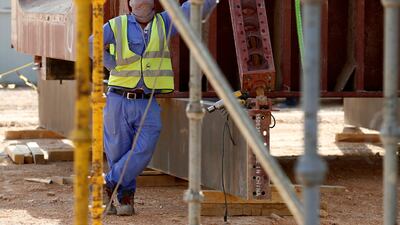Saudi Arabia remains the market with the greatest potential for the region’s construction industry, with more than US$250 billion worth of projects in the pipeline, according to a new report by the regional news service Meed.
The kingdom has almost as much work in the pre-execution phase as the GCC’s second and third-biggest markets combined: the UAE has $184bn of work in the pipeline while Qatar has $69bn.
Meed said in the new report that after a year of uncertainty in 2016, Saudi Arabia will start to deliver on its promises in 2017. The construction industry in the country almost ground to a halt last year, following a decision to stop awarding new contracts for major government projects until a new network of programme management offices (PMO) was established. Payments to contractors for all but the most essential projects were also halted for the first nine months of the year, placing serious cash-flow pressures on many contractors and leading to tens of thousands of workers for some of the country’s biggest companies being left without pay for months.
However, after setting out its blueprint for reform in its Vision 2030 plan, Riyadh is now in the process of implementing measures that will lead to more major schemes being built and paid for by the private sector.
The Meed report, Saudi Arabia 2017: Delivering Vision 2030, says that one of the first major steps has already been taken with the establishment of a national centre for privatisation in March, which will be responsible for the procurement of public-private partnership (PPP) deals.
Four PPPs have already been announced in the kingdom for airport projects at Yanbu, Taif, Qassim and Hail. The country has also set itself a target of privatising all of its airports by 2020. Advisers have also been appointed to look at privatisation in other sectors, such as health care, with the ministry of health looking for experts to draft a framework of companies that will help it to build about 3,000 healthcare centres.
“Despite the challenges we have seen over the past two years as a result of the fall in oil prices, Saudi Arabia continues to be the biggest and most important market in the region,” said Meed’s editorial director, Richard Thompson.
Last week, Abdul Rahman Al Fadli, Saudi Arabia’s minister of environment, water and agriculture, announced the launch of 116 water supply and sanitation projects worth a total of 4.9bn Saudi riyals (Dh4.79bn), which the ministry said would be delivered as part of its National Transformation Plan.
Despite the promise of the Saudi market, challenges remain. Although Bechtel was appointed to oversee the national programme management office, known as Mashroat, in February, many other ministerial and municipal PMOs still need to be put in place.
“They’re promised for the second half of 2017 and they’re only going to come out with the first phase of what’s alleged to be $80bn worth of work,” said Terry Smith, a director of the Riyadh-based construction company Nassab Group. “So that means you’re going to see about $20bn for the second half of this year.”
A report on the kingdom’s cement sector published last week by Bahrain’s Securities & Investment Company stated that although the worst may now be over in terms of the contraction in demand, recovery is likely to be slow, meaning cement prices are likely to remain depressed.
“Social housing projects and second-order impact of the ‘white land tax’ should trigger demand revival. On the other hand, project cancellations elsewhere will have an offsetting impact,” the report said.
It predicted an overall drop of 8.6 per cent in demand for cement this year, before a 2.5 per cent recovery next year.
mfahy@thenational.ae
Follow The National's Business section on Twitter


